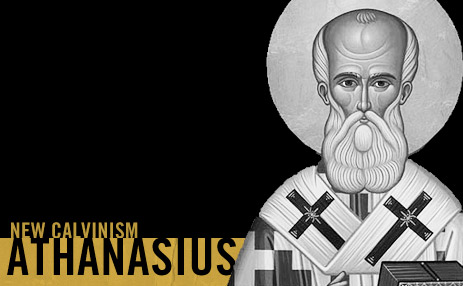Latest
-
Objections to the Christian Faith from the Unchurched and De-Churched
 Tue Dec 02, 2014
Tue Dec 02, 2014
by Resurgence -
Craig Groeschel: We Innovate for Jesus
 Tue Oct 14, 2014
Tue Oct 14, 2014
by Resurgence -
Mark Driscoll: Revelation
 Tue Oct 07, 2014
Tue Oct 07, 2014
by Resurgence -
RESURGENCE LEADERSHIP #034: JOHN PIPER, WHY I TRUST THE SCRIPTURES, PART 2
 Tue Sep 30, 2014
Tue Sep 30, 2014
by Resurgence -
Resurgence Leadership #033: John Piper, Why I Trust the Scriptures, Part 1
 Tue Sep 23, 2014
Tue Sep 23, 2014
by Resurgence

Archives
Athanasius On Theology
 Athanasius is widely regarded as one of the most important theologians in the history of the Christian faith. The early details of Athanasius' life are somewhat uncertain. He was born between 296 and 298 A.D. and at some point early in life came to love Jesus Christ and God and spent a great deal of time reading the Bible. The story is told that as a young man he was discovered by the prominent theologian Alexander. After speaking with Athanasius, Alexander was impressed with the young man's love for God and decided to formally train him for ministry. Though a teen, by 313 Athanasius was in full-time ministry as the theological secretary to Alexander.
Athanasius is widely regarded as one of the most important theologians in the history of the Christian faith. The early details of Athanasius' life are somewhat uncertain. He was born between 296 and 298 A.D. and at some point early in life came to love Jesus Christ and God and spent a great deal of time reading the Bible. The story is told that as a young man he was discovered by the prominent theologian Alexander. After speaking with Athanasius, Alexander was impressed with the young man's love for God and decided to formally train him for ministry. Though a teen, by 313 Athanasius was in full-time ministry as the theological secretary to Alexander.
The Arian Controversy
Another Christian theologian named Arius was roughly forty years Athanasius' senior and was born around 256 A.D. In 319, Arius sparked a vigorous theological debate that gripped the church for some sixty years. The Arian controversy attacked three of the most important Christian doctrines. First, it denied that Jesus Christ is eternal and existed prior to his incarnation. Second, it denied that Jesus is fully God. Third, it denied the doctrine of the Trinity, which states that there is one God in three persons—Father, Son, and Spirit.
The First Council of Nicaea
The Arian controversy was causing great division both in the church and the Roman Empire, so Constantine called a council in Nicaea in 325 in an effort to mediate the conflict. The Council of Nicaea was attended by approximately three hundred bishops as well as other Christian leaders who were not bishops, such as Arius and Athanasius. Many of the bishops in attendance bore the marks of their conflict, such as scars on their bodies, and one bishop was missing a hand and another missing an eye from persecution over the issue. The debate raged from May until August. Though he was not a bishop, Athanasius was welcomed into the discussions and proved himself to be an invaluable contributor. Unlike many theologians in his day who were steeped in philosophy, Athanasius was a man deeply committed to Scripture and argued relentlessly for the Trinity and the deity of Jesus Christ from the Bible.
The Nicene Creed
The Nicene Creed resulted from the Council at Nicaea and confirmed that Jesus Christ is eternally God and the second member of the Trinity. This document has served as the definition for Christian orthodoxy in every generation since and explains why many call Athanasius "the father of orthodoxy." His book On the Incarnation, which he penned while still in his twenties, remains one of the most important theological books ever written because it cogently and biblically argues that Jesus Christ is eternally God and the second member of the Trinity who became a man to redeem men from their sin. Although a man of slight build and gracious demeanor, Athanasius fought boldly for his Trinitarian God and Lord Jesus Christ. Members of his churches were murdered, including men who were hung and women who were slaughtered. Athanasius' enemies routinely brought false charges against him; they ran him out of town into exile on five occasions, for a total of seventeen of his forty-five years as bishop. Pastor Athanasius was dearly loved by his people and was warmly welcomed by them each time he returned from exile. He died in 373 as an elderly man, loving pastor, and pastor to fellow pastors. Eight years after his death, in 381, Athanasius was finally vindicated when his doctrines about Jesus Christ were officially confirmed as biblical orthodoxy at the Council of Constantinople, some sixty years after the Arian controversy erupted.